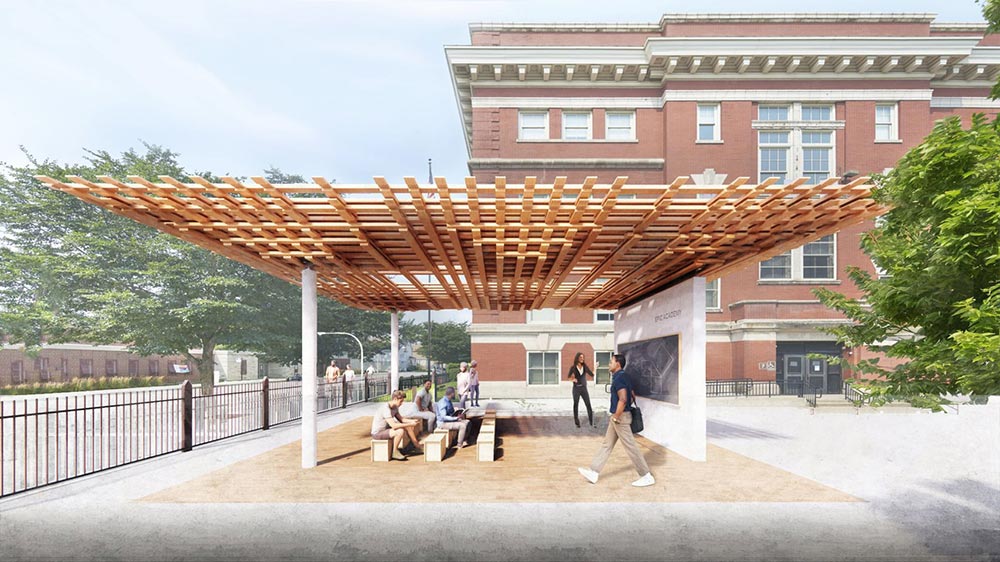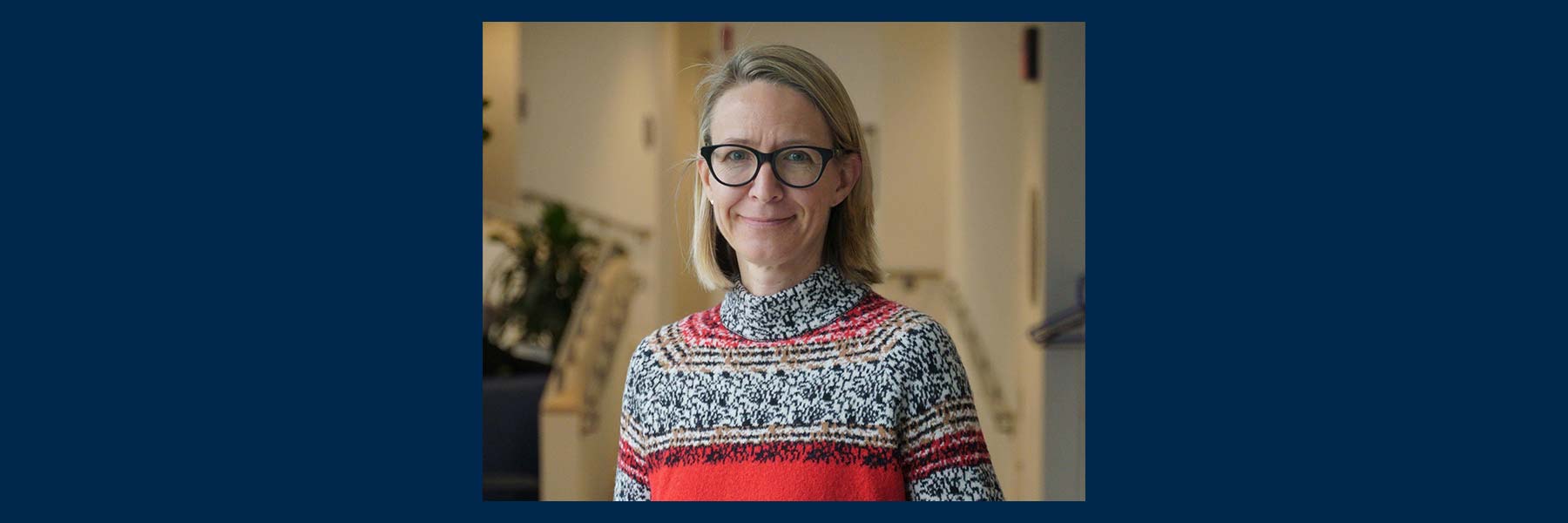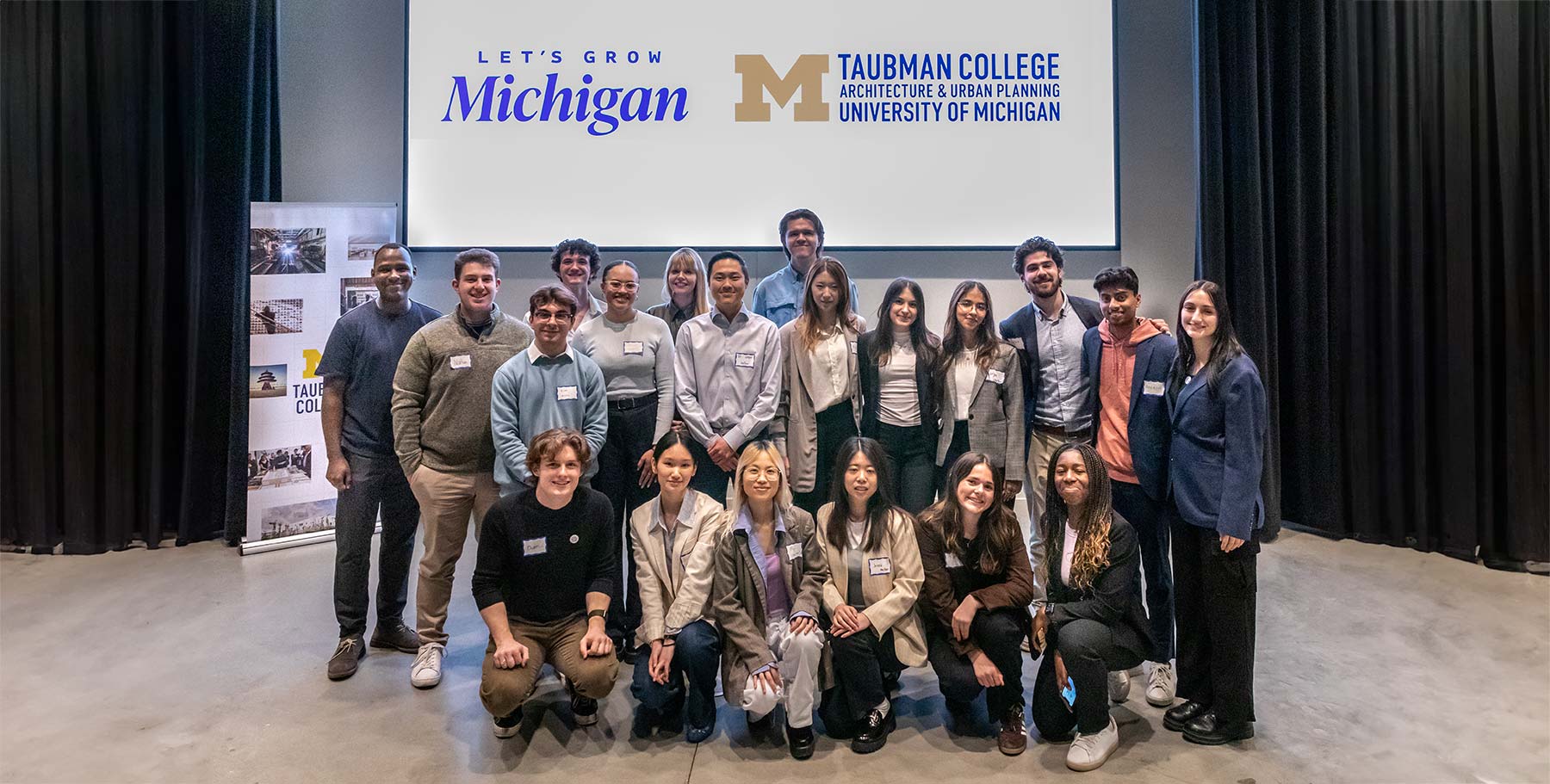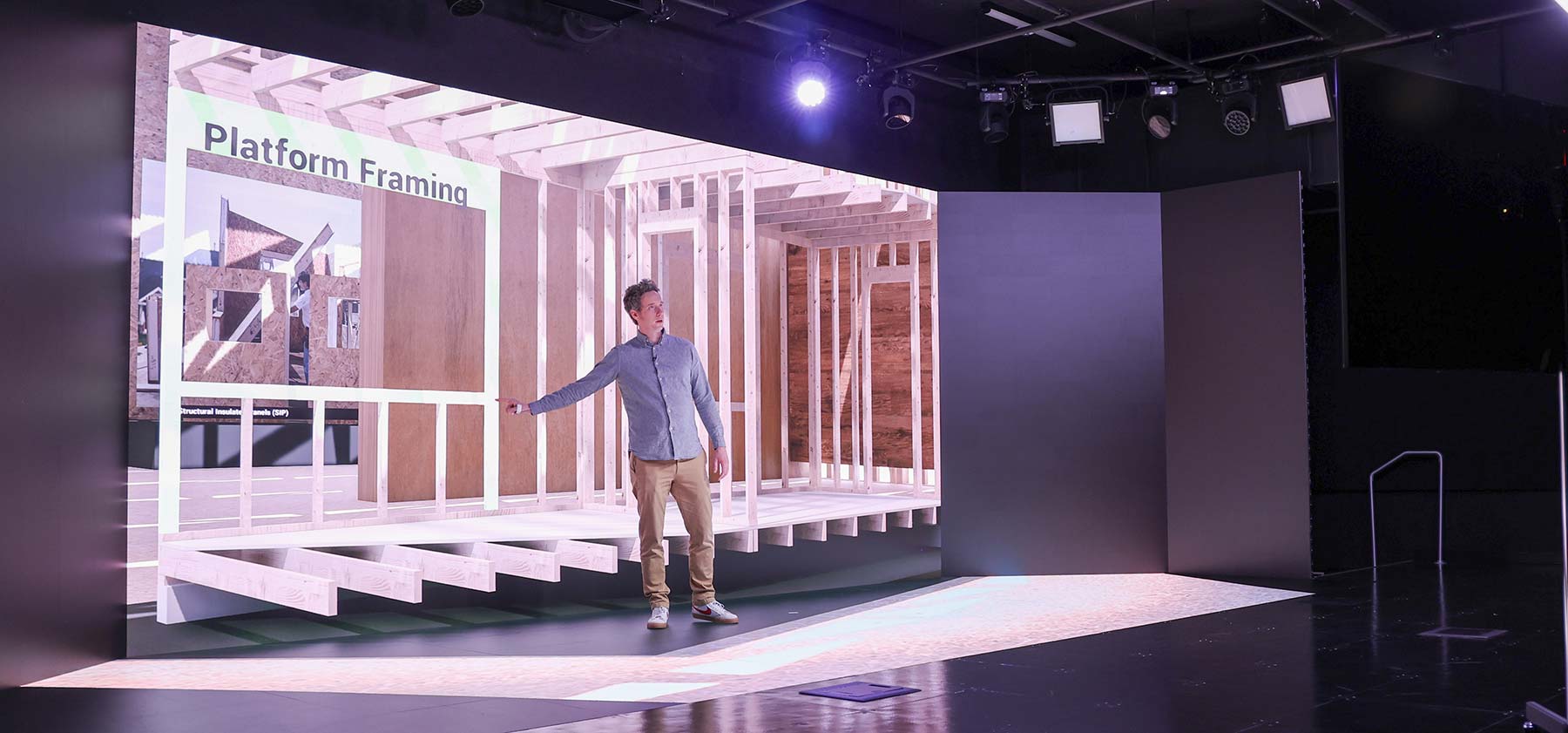The Chicago Architecture Biennial, which kicks off on September 17, features the work of several Taubman College faculty. With the theme, The Available City, the Biennial runs until December 18, 2021, at locations across the city.
The 2021 Biennial presents ideas and possibilities for vacant urban spaces, activated with and for local community groups in collaboration with designers.
Comprising in-person and digital programs, The Available City moves outside of what has historically been the main venue of the Chicago Cultural Center to span 10 neighborhoods and feature 18 projects created by more than 68 contributors, with site partners ranging from community gardens and historic sites to schools and vacant lots. Each will bring The Available City’s community-focused exploration of architecture and the urban landscape into neighborhoods throughout Chicago, augmented and broadened by the participation of cultural partners across the city.
Taubman College faculty who are participating in the 2021 Chicago Biennial are:
Ann Lui (Future Firm)
Future Firm is participating as part of a collective called the Central Park Theater Restoration Committee — an interdisciplinary group of partners working in collaboration towards the revival of the Central Park Theater.
One of the most historically significant movie palaces in the United States, the Central Park Theater in Chicago’s North Lawndale neighborhood is one of the first of its kind and became a model for buildings of its type that followed. In 2020,the Central Park Theater Restoration Committee joined in collaboration with the church to plan for a sustainable restoration and redevelopment of the theater to serve the neighboring community. Currently, a planning process is underway to seek funds to address deferred maintenance and restoration priorities, while continuing ongoing community engagement. The Central Park Restoration Committee is hosting a community event on September 18, “A Glimpse of What’s To Come,” featuring music, local food vendors, and tours of the historic building, as well as a new installation by Basel–based architect Manuel Herz (register).
Lui, who also is currently participating in Exhibit Columbus as a Miller Prize winner, is an Assistant Professor of Practice in architecture.
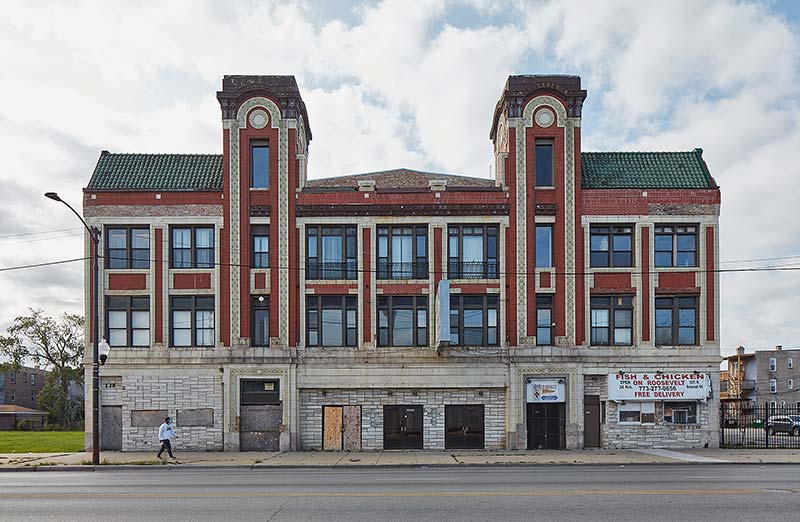 Central Park Theater, © Tom Harris
Central Park Theater, © Tom HarrisWes McGee and Tsz Yan Ng
Wes McGee and Tsz Yan Ng collaborated with architecture firm Skidmore Owings and Merrill (SOM) to design and build an outdoor pavilion utilizing robotic fabrication techniques for Epic Academy in Chicago’s South Shore neighborhood. SPLAM Timber Pavilion was constructed from sustainably sourced timber and showcases an optimized structural layout using spatial laminated timber to produce a more sustainable and efficient slab to inform design and construction processes. Located at EPIC Academy, SPLAM also will function as an outdoor classroom and an event and performance space for students and teachers.
McGee is director of Taubman College’s digital fabrication lab (FABLab) and an associate professor of architecture. Ng is an assistant professor of architecture.
Julia and John McMorrough (studioAPT)
With a nod to Chicago’s particular urbanism as one of improvisation, collaboration, and, undeniably, humor, studioAPT is exhibiting an illustrated proposal essay that makes an argument for the creation of the Harold Chicago Foundation for Improvisational Urbanism.
More traditional formats of urban analysis (plans and ledgers, charts and trendlines) don’t easily accommodate the challenge of simultaneously mapping the intertwined logics of possibility and constraint that make a city the city. To describe urbanity as a performance is to understand its particular admixture as one of collaboration and improvisation at a variety of scales and by various means; it is the opportunity to actively engage the city, to work with a broad range of performers and audiences, to understand what it is, and to envision the city yet to come.
Co-principal Julia McMorrough is an associate professor of practice in architecture; co-principal John McMorrough is an associate professor of architecture.
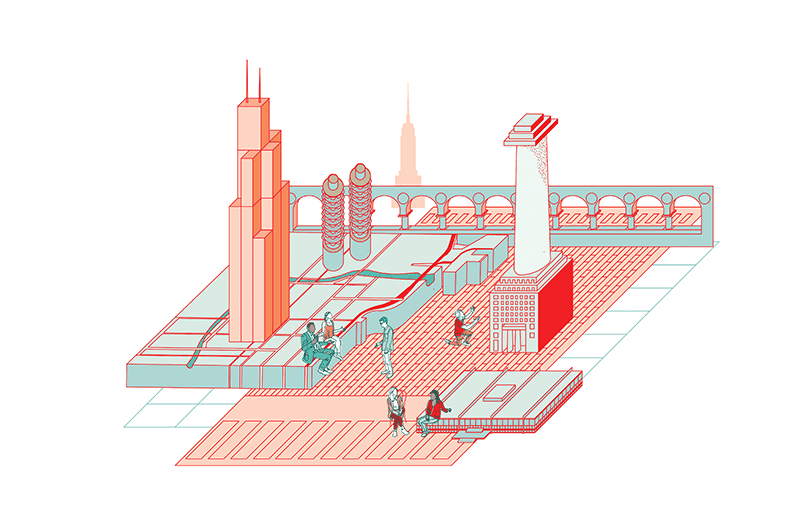 “Harold Chicago Foundation for Improvisational Urbanism,” courtesy of studioAPT.
“Harold Chicago Foundation for Improvisational Urbanism,” courtesy of studioAPT.Craig Wilkins
Wilkins, an associate professor of architecture, will participate in a public conversation with the Biennial’s artistic director, David Brown entitled, “The Transformative Possibilities of The Available City.” The event will take place online on September 28, 2021 (register).
Brown and Wilkins will discuss Wilkins’ work on spatial justice in marginalized communities as it relates to a critical theme of The Available City: the future of the more than 10,000 city-owned vacant lots that are concentrated on the South and West Sides of Chicago, in predominantly Black and Brown neighborhoods. Their conversation will explore possibilities of community collaboration and ways of changing perception of shared space for the present and future in spaces of Chicago and beyond.

